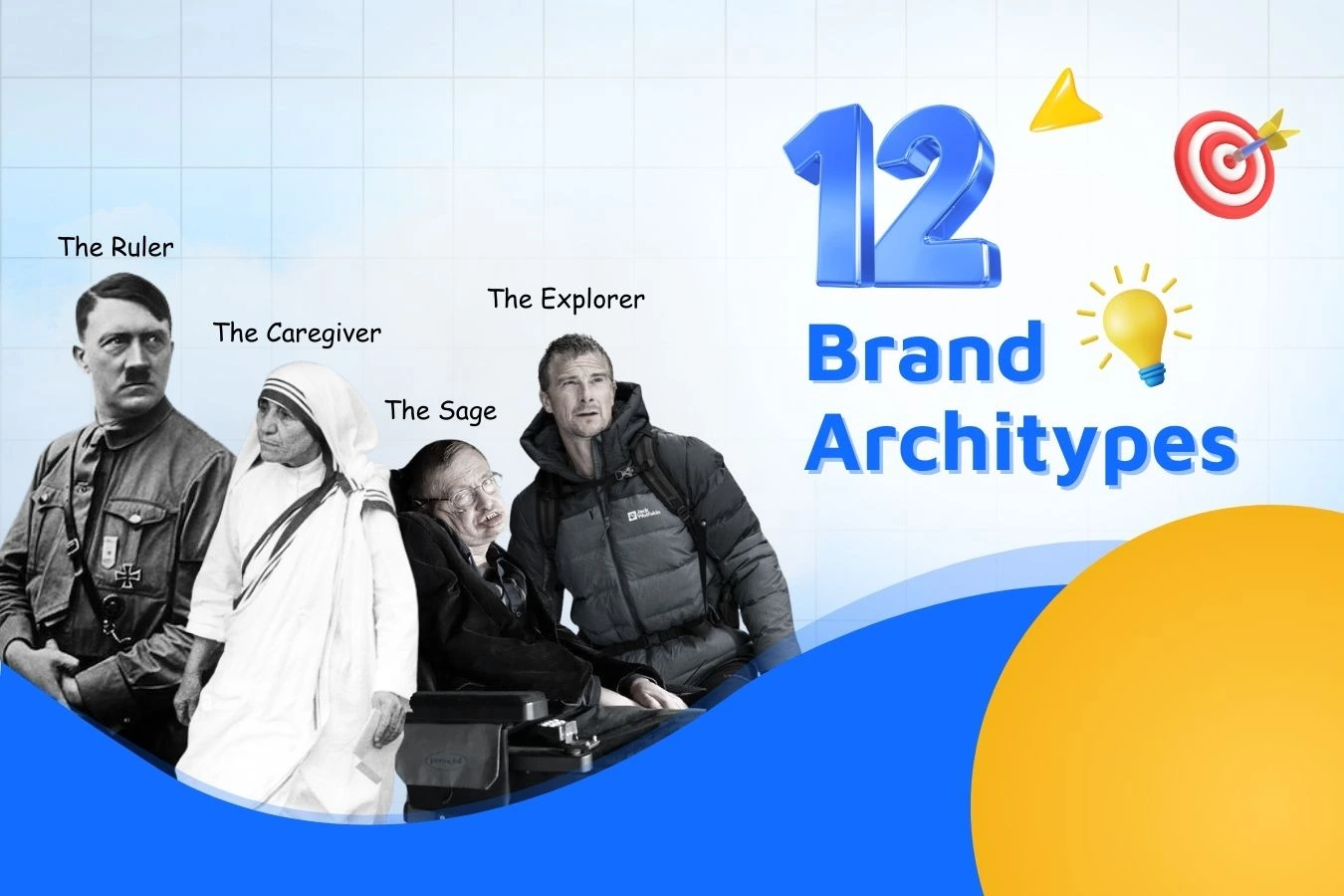Table of Contents
ToggleUnlocking the Power of SEO: Strategies Every Digital Marketer Should Know
Businesses increasingly recognize the pivotal role of SEO in their online success, investing resources to ensure optimal visibility and accessibility on the web. SEO is about improving a website so it shows up higher when people search online. This helps bring more people to the website and makes the business look better online, which can help it make more money. The power of SEO lies in its ability to connect businesses with their target audience at the precise moment when they are actively searching for information, products, or services.
By using SEO, digital marketers can ensure that when people search online for things related to their brands, they see their brands first. This helps more people know about the brands and makes them more likely to become loyal customers.
In this blog post, we’ll discuss SEO extensively. We’ll cover essential things digital marketers should know, from the basics to more advanced strategies. We want to help you improve your digital marketing by showing you search engine optimization effectiveness (SEO). Come along as we learn about SEO and how it can help your business grow.

Understanding the Power of SEO
SEO, or Search Engine Optimization, is about making your website appear higher when people search for things online. It’s super important in digital marketing because it helps businesses get noticed by more people, which can mean more customers and more money.
Did you know that businesses that use SEO often see big improvements in their online visibility and sales? For example, a study found that websites on the first page of Google search results get around 95% of all clicks. That’s a lot of potential customers!
“Your audience is out there. Make sure they find you with the perfect Google Ads strategy, every time!”
How Does SEO Work?
Well, search engines like Google use special formulas called algorithms to decide which websites to show first when someone searches for something. These algorithms examine keywords, website quality, and how many other websites link to yours. SEO is about making your website look good to these algorithms so they’ll put it at the top of the search results.
But why does it matter if your website appears first in search results? Think about it: when was the last time you clicked on a website that wasn’t on the first page of Google? Most people don’t bother looking past the first page, so if your website isn’t there, you’re missing out on many potential customers. That’s why understanding SEO is so important for digital marketers.
Keyword Research and Optimization
Keyword research and optimization are like finding the right words that people use when searching online and ensuring those words are all over your website. This helps search engines understand your website and show it to the right people when they search for those words. So, if you sell pizza in New York, you’d want to make sure your website mentions “pizza” and “New York” a lot, so when someone searches for “pizza in New York,” they find your website easily.
Importance of Targeted Keywords
Targeted keywords are specific words or phrases your target audience will likely use when searching for information related to your business, products, or services. By identifying and targeting relevant keywords, you can ensure that your website appears in search results when potential customers actively seek solutions or information related to your offerings.
Tools and Techniques for Keyword Research
Several tools and techniques are available to aid in keyword research, helping you identify the most relevant and high-performing keywords for your website. Tools like Google Keyword Planner, SEMrush, and Moz Keyword Explorer provide valuable insights into keyword search volume, competition level, and potential traffic opportunities. Additionally, analyzing competitor websites, monitoring industry trends, and leveraging customer feedback can help uncover valuable keyword opportunities.
Best Practices for Keyword Optimization
Once you’ve identified your target keywords, optimizing your website content is essential. Best practices for keyword optimization include:
- Enter keywords into your website’s meta tags, headings, and body content.
- It creates high-quality, relevant content that addresses the search intent behind targeted keywords.
- Avoiding keyword stuffing or overusing keywords can harm your website’s credibility and user experience.
- Regularly monitor keyword performance and adjust your optimization strategies based on insights and changes in search trends.
If you do good keyword research and optimization, you can ensure that your website shows up well in search results and attracts the right kind of visitors.
On-Page SEO Techniques
On-page SEO techniques are like superpowers for your website, helping it become more visible and attractive to search engines. Here’s how you can wield these powers effectively:
SEO Prowess
Mastering on-page SEO is key to improving your website’s ranking in search engine results. By implementing on-page SEO techniques, you can optimize your web pages to better meet the criteria that search engines look for when ranking websites.
Title Tags, Meta Descriptions, and URL Optimization
Think of title tags, meta descriptions, and URLs as important labels for your web page. They’re like signs that show both search engines and people what your page is about. When you optimize these parts by using the right keywords and writing attractive descriptions, it’s like making your signs more noticeable. This can help your website improve in search results and encourage more people to click on it.
Content Optimization for Search Intent and Readability
Creating high-quality and relevant content is essential for on-page SEO success. If you can understand the search intent behind specific keywords and craft content that addresses users’ needs, you can attract more organic traffic to your website. Additionally, optimizing your content for readability by using clear headings, concise paragraphs, and engaging language can enhance the user experience and keep visitors on your site longer.
“Content is what the search engines use to fulfill user intent.”
Dave Davies
Image Optimization and Alt Tags
Using pictures on your website makes it look better, but it can also help with how well your website appears in search results. When you give your images names that describe them well and add tags with keywords that match what your website is about, it makes it easier for search engines to understand your content. This can make your website more accessible and increase the chances of it appearing in searches for images.
Off-Page SEO Tactics
Off-page SEO tactics are like secret weapons that boost your website’s reputation and authority across the internet. These tactics work behind the scenes to increase your website’s standing online, making it more visible and credible to users and search engines. Let’s discuss some powerful strategies:
Importance of Backlinks and Link Building
Backlinks are like votes of confidence from other websites, telling search engines that your website is trustworthy and valuable. The more high-quality backlinks you have from reputable websites, the better your website’s credibility and visibility in search results
Strategies for Earning High-Quality Backlinks
Earning high-quality backlinks requires strategic outreach and relationship-building with other websites in your industry. Some effective strategies include creating valuable content that others want to link to, guest blogging on reputable websites, and participating in industry forums and communities. Additionally, networking with influencers and collaborating on content can help attract backlinks from authoritative sources.
Social Media's Role in Off-Page SEO
Social media platforms significantly improve off-page SEO by amplifying your website’s reach and engagement. By sharing your content on social media, you can attract more visitors to your website and encourage them to share it with their networks. Also, social signals such as likes, shares, and comments can indirectly influence your website’s rankings by indicating popularity and relevance to search engines.

Measuring and Monitoring SEO Success
Tracking the success of your SEO efforts is crucial for understanding what’s working well and what needs improvement. It’s like having a GPS for your digital marketing strategy, guiding you toward your goals and helping you navigate any roadblocks. Here’s how you can effectively measure and monitor your SEO success:
Key Performance Indicators (KPIs) for Tracking SEO Performance
Key performance indicators, or KPIs, are metrics that help you gauge the effectiveness of your SEO strategies. Common SEO KPIs include organic search traffic, keyword rankings, backlink profiles, conversion rates, and bounce rates. You can assess the SEO impact and identify areas for optimization by regularly monitoring these KPIs
Tools for Monitoring and Analyzing SEO Efforts
Several tools are available to help you monitor and analyze your SEO performance effectively. Google Analytics provides valuable insights into website traffic, user behavior, and conversion metrics. Tools like Google Search Console also offer valuable data on search queries, impressions, and click-through rates. Popular SEO tools like SEMrush, Moz, and Ahrefs provide comprehensive analytics and competitive intelligence to track keyword rankings, backlinks, and on-page optimization.
Adjusting Strategies Based on Data Insights
Social media platforms significantly improve off-page SEO by amplifying your website’s reach and engagement. By sharing your content on social media, you can attract more visitors to your website and encourage them to share it with their networks. Also, social signals such as likes, shares, and comments can indirectly influence your website’s rankings by indicating popularity and relevance to search engines.
Future Trends and Predictions in SEO
As the digital world keeps changing, some new things are happening in SEO. With more people searching on their phones and using voice search, SEO strategies must also change. Here’s what to expect and how to stay ahead:
Key Performance Indicators (KPIs) for Tracking SEO Performance
In the future, we anticipate a shift towards more sophisticated KPIs that align closely with business objectives and user experience metrics. While traditional metrics like organic search traffic and keyword rankings remain essential, new KPIs such as voice search visibility, featured snippet optimization, and user engagement metrics may gain prominence. Tracking these KPIs can give businesses insights into SEO effectiveness and user behavior.
Tools for Monitoring and Analyzing SEO Efforts
Advancements in technology are driving the development of more advanced tools for monitoring and analyzing SEO efforts. AI-powered analytics platforms and machine learning algorithms are becoming increasingly prevalent, enabling businesses to uncover valuable insights and trends in their SEO data. Additionally, integrations with other marketing channels and data sources provide a more holistic view of the customer journey, allowing for more informed decision-making and strategic planning.
Adjusting Strategies Based on Data Insights
As SEO becomes more data-driven, the ability to adjust strategies based on data insights will be paramount to success. Businesses must invest in robust analytics capabilities and develop a culture of experimentation and continuous optimization. Businesses can employ AI and machine learning to automate data analysis and gain real-time insights into SEO performance. This facilitates agile decision-making and rapid adaptation to changing search trends and user preferences.
Final Words
In conclusion, the power of SEO is undeniable in helping businesses succeed online. To improve online visibility and achieve digital marketing goals, companies can implement keyword optimization, on-page, and off-page tactics, and monitor SEO performance to attract more visitors. As the digital landscape continues to evolve, staying informed about emerging trends and adapting strategies accordingly will be key to unlocking the full potential of SEO and driving long-term success.












